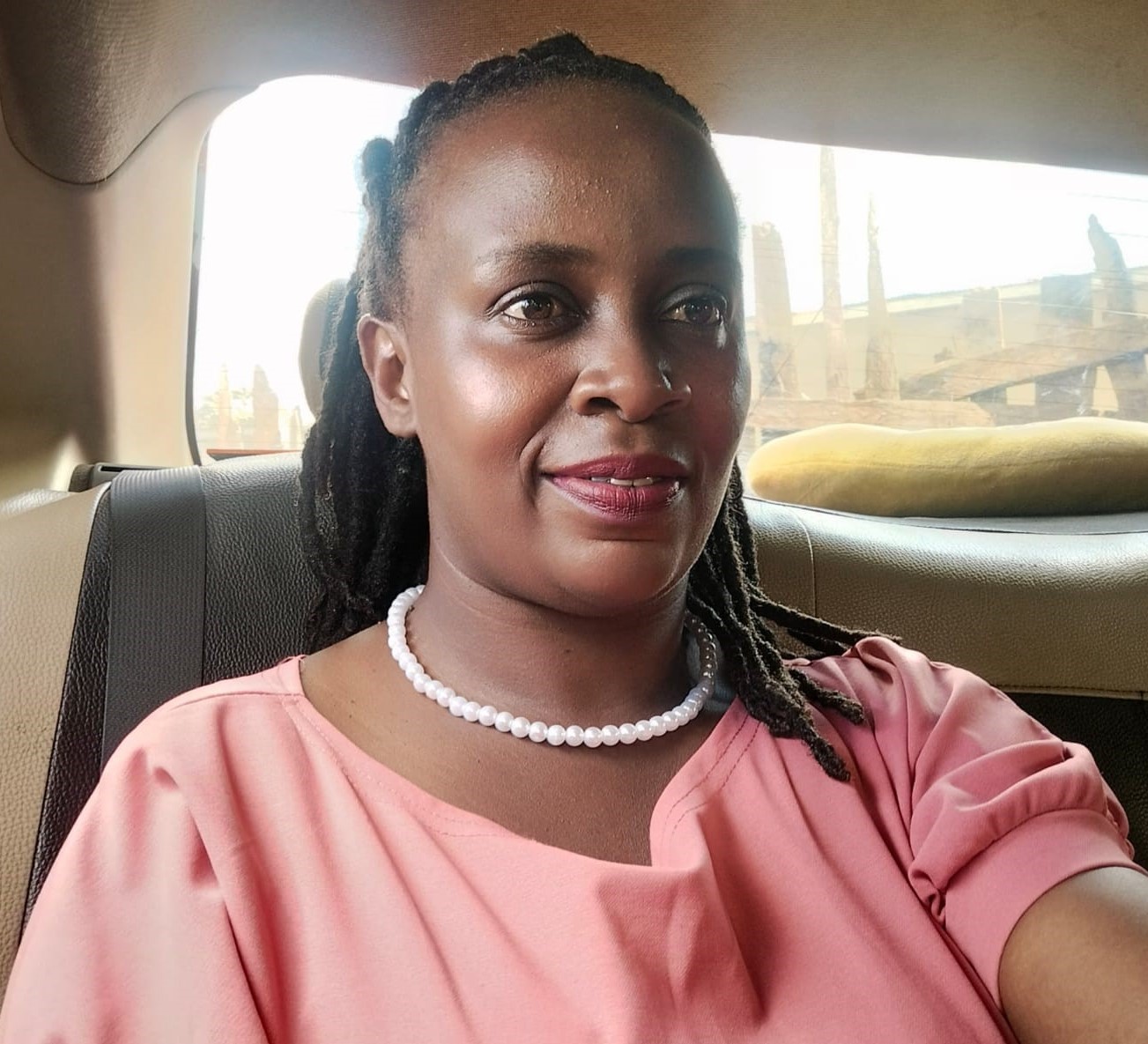I was only five years old when my grandmother died one afternoon almost three decades ago. I remember my uncles speaking with my grandfather in hushed tones. And then when my mom and aunties were informed, everything seemed to stand still. While my memory of that day keeps fading, I could never forget the wailing. It’s unbelievable how sharp, piercing, and painful the cries of death sound. I knew in my heart that something important had happened, something bad and permanent.
When the cry reached the village, our house flooded with villagers in a matter of minutes. They gathered as Africans often do in moments such as this. My mother and my aunties were inconsolable. So, the older women present simply offered them comfort by letting them cry, wail, and roll on the ground, whatever they needed to come to terms with this asteroid-sized blow that had just hit them. They had lost their mother after all—a matriarch and guide had fallen. No, this was no ordinary day at all, and there would be no more ordinary days. This was a sackcloth and ashes moment.
But it was the look on my grandfather’s face that I can’t seem to forget. Before that day, my grandfather was a rock of a man: tall, strong, and unshakable—the embodiment of authority and power itself. But on this day, I saw a man shriveled by grief, his face darkened, his head bowed with shoulders crouched in unimaginable pain. His love was gone, and with her, the sparkle in his eyes. He looked at me, but he didn’t see me. I could tell as his gaze wandered from person to person, mumbling something to himself but saying nothing to anyone. So, I sat with him, in fact, I insisted on sitting by him during the wake that first night. In my little heart, I must have thought that maybe if I sat next to him, this big, terrible thing that had happened would hurt a little less. But sometime that night, I must have dozed off, as children often do, because I woke up in my usual bed, the one I shared with my mother. Then my memory of the events of the day before loaded in—a massive heartache on a tiny heart.
That morning after, our house was swarmed with activities. Visitors and mourners flooded our home. I slowly moved into the background, only observing from the sidelines. A big fire was lit outside our small kitchen, and big sufurias (cooking pots), the likes of which I had not seen before were placed on the fire to make endless cups of tea for all present and those on the way. This went on for days as food and tea took turns on the fire. Bonfires ruled the nights too, as crowds of mourners sat around them telling stories about my grandma, sometimes breaking into song and at other times into thunderous laughter. I was confused that anyone could laugh at this time, but grief, it turns out, is a complicated emotion.
Read – A Letter to Edward Francis Small – A Creative Non-Fiction by Fatou B Camara, The Gambia
I don’t remember much about my grandmother, except that I think about her often now. I have very few memories of her. I don’t even remember her face. But I remember that she was often sick. In the months leading to her death, she was unable to do anything for herself. I remember that she liked to sit under a Chinduli tree that was right outside her house, so during the day someone would take her outside for some sun and bring her back in if it got cold or about to rain. She listened to the radio a lot, always singing along to the songs they played on KBC. I loved that she let me sit with her during these moments as I played with my toys and things. And I loved her.
Her death changed everything at home. After her funeral, only sadness remained. When the mourners left, and my family members who had jobs and school went back, only four of us were left behind: my grandfather, my mom, my aunt, and me. And we were not a family that talked about our feelings. My grandpa was beside himself; he barely ate or left his room. He changed bedrooms. I bet he couldn’t bear the thought of sleeping in the same room he once shared with his beloved, now departed.
Read – An Irony of Your Body – A Creative Nonfiction by Chinenye Favour, Nigeria
A home that once filled with laughter was now silent. It reeked of loss and echoed an insane loneliness. Everyone seemed to withdraw. My mom and aunty spent their days at the farm. My grandfather, when he could, would leave home in the morning only to return when it got dark. He also visited the gravesite every day and I observed him whisper some words, maybe he was praying, which was strange because my grandfather was not a religious man, not at the time.
Oh, but grief will strip you bare.
I never processed the grief myself. My childhood was gone at the age of 5 and I didn’t even realize it. I had to grow up. I went back to nursery school with my friends and classes and things, and the place in my little heart once occupied by innocent joy was replaced only by dread. Having received no explanation about the events of that August, my mind conjured up scenarios of only loss and desolation. I worried that what had happened would happen again. I grew up very afraid and anxious—a constant dark cloud over me.
But now, in my thirties, I, too, listen to the radio a lot, often to the same local broadcaster my grandma would listen to, in a desperate attempt to stay connected to the woman who in life and death significantly shaped my worldview and my life. I find, now, that it brings me comfort, to remember her this way; she liked something, she liked music. So, I sing along to the songs she once sang along to.
 Winnie Wekesa is a budding writer whose love for storytelling dates back to her early childhood. Having grown up in the remote parts of West Pokot, Kenya, her curiosity saw her always carrying a book in her school bag, a habit that has stuck even in adulthood. Winnie holds a degree in Economics and Sociology from Egerton University. She is a self-published author of “From Panic to Peace: A Mindful Approach to Managing Anxiety.” A book close to her heart, in which she writes a relatable tale of her struggles with anxious thoughts while sharing her triumphs over this incredible struggle. This insightful work reflects her commitment to providing solace and guidance through the written word.
Winnie Wekesa is a budding writer whose love for storytelling dates back to her early childhood. Having grown up in the remote parts of West Pokot, Kenya, her curiosity saw her always carrying a book in her school bag, a habit that has stuck even in adulthood. Winnie holds a degree in Economics and Sociology from Egerton University. She is a self-published author of “From Panic to Peace: A Mindful Approach to Managing Anxiety.” A book close to her heart, in which she writes a relatable tale of her struggles with anxious thoughts while sharing her triumphs over this incredible struggle. This insightful work reflects her commitment to providing solace and guidance through the written word.
Before becoming a writer, Winnie worked in finance for a local bank and later moved on to an SME in the events industry. Her journey as she transitioned from a world of numbers to that of narratives reflects her deep-seated passion for storytelling. It has also provided her with a rich tapestry of insights into the complexities of human dynamics and societal structures. Winnie is fascinated by the human condition, she is not only a storyteller but also a bridge between worlds, always seeking to understand, and hopes her readers will join her in this quest.
Beyond her literary pursuits, Winnie is a regular contributor of thought-provoking articles on tourism and travel for a renowned Nairobi-based tour company. Her narratives unearth the hidden gems of her East African roots. She is currently living in Nairobi with her husband and two delightful neighbor’s dogs; Zeus and Snow. And when she is not writing, Winnie indulges in the joy of baking delicious treats, infusing creativity into every recipe.
This Creative Nonfiction was published in the January 2024 edition of the WSA magazine.
Please click here to download the Magazine.








“I was confused that anyone could laugh at this time, ~but grief, it turns out, is a complicated emotion~”
Beautiful piece